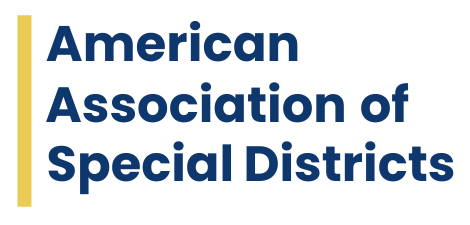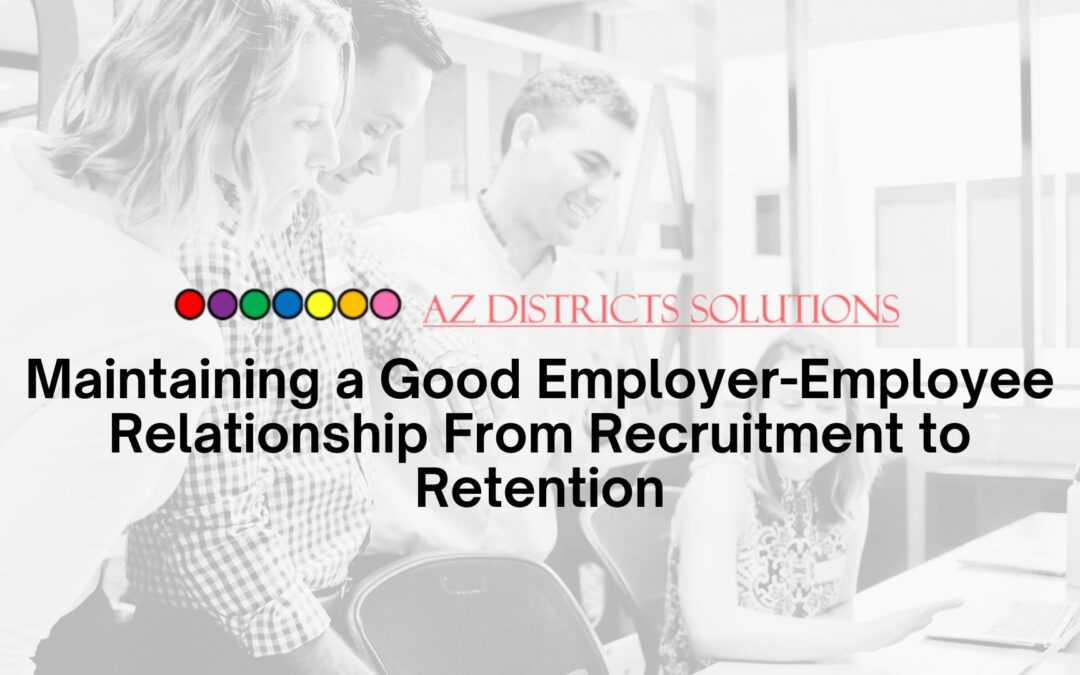
AASD Professional Network Insights: Sara Carroll, Owner, AZ Districts Solutions
Fostering good employer / employee relationships through staffing decisions paired with strong policies and guidelines are paramount for success of a special district. Crafting this crucial dynamic is important and also requires compliance with County, State and Federal agencies.
Special district leaders should consider these elements straight out of the gate, through the hiring process.
When recruiting, special districts need to take into consideration changes in the job market, technology, expectations, and motivation between multiple generations applying for the same job positions. Hiring managers and boards are encouraged to research salary levels of similar positions among their public and private competitors in the workforce marketplace. With rising diversity and changing social norms in the workforce, especially among younger Americans, it is also important to enter recruitment and interviews with an open mind for new ideas and flexibility, while maintaining the District’s mission and principles.
A job description is crucial for setting this stage. The job description summarizes essential responsibilities, activities, qualifications and skills for a position, and it should provide an overview of your business and expectations for the position. This document describes the type of work to be performed and should include important info to provide detail for candidates to determine if they’re qualified for the position. Job seekers say the quality of a job description is very influential on their decision to apply for a job.
Setting a tone for workplace culture is also essential in the hiring process, and serves as an opportunity for the interviewee to understand the workplace vibe. Interviews can be conducted by Board members, managers, a selected committee, or community panel.
Any required certifications or degrees should be requested, provided, and reviewed that they are satisfactory and valid prior to offering a position. If certification levels are required to be maintained, candidates should be made aware of the conditions and timelines should be established for acquiring additional education or certification levels. These expectations are vital to set to ensure employee retention overtime.
Hiring directors or managers should complete an official offer a job to an applicant once a decision is made. The document officially invites the applicant to accept the listed job, explains the duties, benefits, the probationary period start date, and the amount of pay. It also explains what the applicant needs to do to accept the position. The offer should be signed by both parties and becomes part of the employee file.
Make sure to provide the new employee an Employee Handbook, which establishes rules of conduct for employees, ensuring a safe, healthy, and positive work environment for your district. The crucial documents sets the tenor for new and current employees. Having your policies in writing will make it easier to resolve workplace issues and employee conflicts as they arise, and helps to protect both the District and all of its employees. Employee Handbooks should be tailored to specific departments, or list policies that apply to all employees.
Employees thrive in an environment of stability and certainty, which is why it is important for handbooks to define safety codes, confidentiality policies, employee conduct, and termination policies. A Termination policy should be specific on warnings, incident reports, how to report a policy violation, outline chain of command and complaints process. The chain of command is important to help avoid gossip, bullying, and peer pressure among co-workers.
Further, employee evaluations are important to track the progress on goals set or were set for employees during probationary periods and during the regular business throughout the year for potential wage increases for current employees. Expectations should be reviewed to determine if the employee have met goals, mastered additional duties or are still in progress. It is crucial to see how well staff continues develop skills for continued employment.
It is best practice to review and update employee handbooks and policies at least every three years to ensure they are current with any state, federal and board requirements.
Finally, understand that the district, as an employer, is fully accountable for guaranteeing the security of every district employee and client in the workspace. Employers have an important role to play in preventing workplace incidents and must ensure that good policies are carried out and sustained. District managers are encouraged to collaborate with local law enforcement and emergency operations officials on local resources for emergency response and workplace safety protocols.
Sara Carroll is the Owner of AZ Districts Solutions, a consulting and management firm based in Stanfield, Ariz., geared toward ensuring special district managers and board members are educated and up to date on compliance measures. In addition to AZ Districts Solutions’ services to districts across Arizona, Sara also serves as the American Association of Special Districts President and is the Arizona Special Districts Alliance Administrator.
For more insights on employer/employee relations, district administration and compliance, and more (from A to Z), contact Sara at s.carroll@azdistrictssolutions.org and visit AZ Districts Solutions online at www.azdistrictssolutions.org.
Interested to provide your professional insights? Join AASD’s Professional Network for a direct connection to America’s special districts. Email Cole Arreola-Karr, AASD Executive Director, for more questions at contact@americasdistricts.org.

